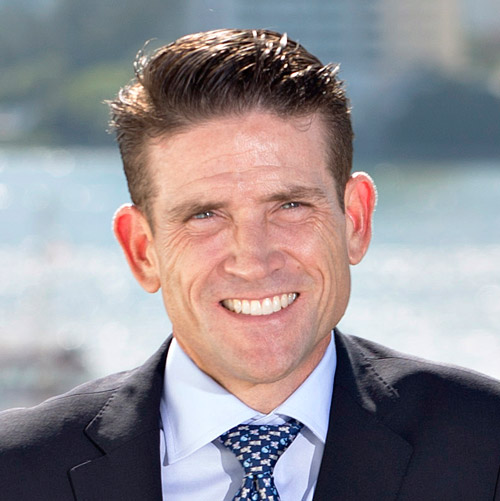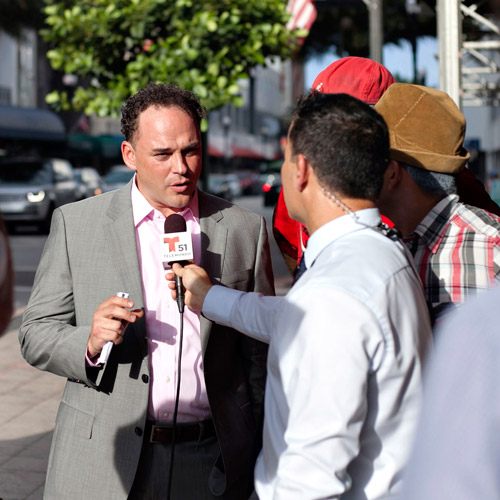
Lorna Hagen spends a lot of her time studying and considering the future of work. She also shares her findings with her OnDeck Capital colleagues. As senior vice president of people operations for the small business lender, that’s her job. Her role is a leadership position in what traditionally is called human resources. According to Hagen, the changes in commerce, and in particular, where people fit within those changes, are what the rest of us should be thinking about as well.
It’s a scary topic for many, which is understandable. Technology and automation, globalization, and the evolving nature of workplaces each challenge traditional notions about employment. But adapt we must, Hagen insists, and let go of fear. For those who do, the future is exciting.
OnDeck is itself a disrupter. The company launched in 2007 with innovative digital methods to evaluate the financial health of small- and medium-sized businesses. Loans from OnDeck bring much-needed capital to business owners more quickly than traditional banks.
For example, a six-year-old Chicago restaurant with $530,000 in revenue was able to get a credit line of $30,000 for renovations, skipping a month or two of delays because of paperwork. Businesses as young as nine months with $75,000 in gross revenue might be eligible, although OnDeck’s more typical borrower has a seven-year track record, grosses $450,000 annually, and has a credit score of 660.
This access to financing is pretty exciting from the customer perspective. The company has lent more than $5 billion thus far and is expanding rapidly. OnDeck is beginning to partner with banks, such as JPMorgan Chase, to bring its fast-approval, fast-financing capabilities to their small-
business clients.
Hagen’s primary responsibility is to find, train, and retain people who can grow with the firm. How employees and the company find a mutually beneficial relationship requires tapping into some radically different ideas and practices from both sides.
“Exponential growth of technology will be the source of much change in the future,” says Hagen, who worked in nearby fashion and publishing companies prior to joining New York-based OnDeck in 2013. “Online lending is past the
skepticism phase.”
So as it goes mainstream, software and the people who manage with it will need to constantly evolve, improve, and meet expectations of customers who have come to rely on receiving loans quickly and with minimal hassle.
That’s not all that’s changing. Hagen says the hierarchies within companies are going through “a reconfiguration, where it’s getting blurrier.” She says it’s critically important for people to pay attention to skills development, to find mentors, and to avoid silo-thinking by considering the broader implications of whatever it is that they do.
For example, almost everything can fall under the media microscope. “As a check, always ask yourself, ‘What will this look like in the Wall Street Journal?’” Hagen says.
The employer has to be oriented to a “very diverse, all-inclusive pipeline,” Hagen says. The Puerto-Rican born New Yorker, who studied at Cornell University, has a pretty good handle on what that means.
“We serve companies in seven hundred different industries,” she says, explaining that this is why OnDeck has the people who can relate to a diverse group of entrepreneurs who depend on the company for financing. For example, OnDeck has Spanish- and Korean-speaking sales agents, giving them the ability to address many customers in their native language.
This ability to adapt and evolve is something Hagen has been doing since childhood. Her father’s job as an electrical engineer created opportunities for Hagen to experience many different academic and social environments. Each time she transferred to a new school, Hagen was able to quickly adapt to her new surroundings. “I find that I can just about parachute into any company,” she says. “I learned early the need to identify people very quickly, to know who to hitch my wagon to.”
She says those years growing up also gave her a curiosity about everything. “I didn’t go into science like my dad, but I’m always looking at things through multiple lenses,” she says. That same inquisitiveness is an advantage that can benefit every employee.
“Intellectual capital is the future of work,” Hagen advises. “We need critical thinkers, broad thinkers.” In successful companies, diversity training might be less important in five to ten years because “critical thinkers don’t need it. They are simply open to what all people have to offer.”
Until such a time, she encourages unconscious bias training, which is designed to mine out misperceptions and prejudices that exist in almost everyone. “All employees are responsible for accepting and providing diversity of thought,” she says. “It is proven that diverse companies have higher shareholder returns and stronger corporate reputations.”
Employers too have to broaden their thinking: “We need to know what employees value, which varies quite a bit,” Hagen says. “We have to think of our people the way we think of customers.”
Which doesn’t seem scary in the least.
 Call to Action with Maribel Hines
Call to Action with Maribel Hines
Adapt, or stay behind. Lorna Hagen aptly talks about the future of work, and gets that to remain marketable as an individual and thrive as an organization, we must adapt in this increasingly disruptive competitive environment. At its core it is about being open to possibilities. Adaptability—the ability to change to fit new circumstances—is a crucial skill for leaders, and an important skill in emotional intelligence. This willingness to get out of one’s comfort zone, and learn continuously as a way of adapting to changing surroundings, differentiates successful and unsuccessful leaders.
Make decisions, despite ambiguity. Do not let ambiguity and uncertainty prevent you from trying new things or making decisions. Some situations may call for you to make a decision without the complete picture. While it’s important to gather needed info, don’t wait for that final bit of hard data that will tell you what to do because it may never come. Consider all of the info available, make the best decision you can, and act on it. This requires a balance of trusting your intuition against the facts and data at hand. Being a decisive leader will ultimately enhance your value to the organization. If you can improvise and adapt to different and unexpected situations, you will be better positioned for success.
Work on your flexibility. Be willing to change course as more info comes to light. So it wasn’t the best decision to make? Acknowledge it, learn from it, and course correct. Accept this new info and insight, and incorporate into your new direction to make the necessary changes.
Foster innovative thinking. Our environment calls for the need to embrace new skills, new behaviors, new ways of working, and new mind-sets. So, get comfortable with a new set of assumptions. Yes, this may mean recognizing that we don’t (and can’t) have all the answers. So step back to be open and curious. Ask questions and listen deeply. Ask the extra question to challenge yourself and others to go deeper and stretch further. Seek diverse viewpoints. Curiosity and inquisitiveness fuels innovation.
Ask Yourself: How can I encourage innovation here?
Ask “What if…” questions. Be the collaborative innovator you wish to see. ”

